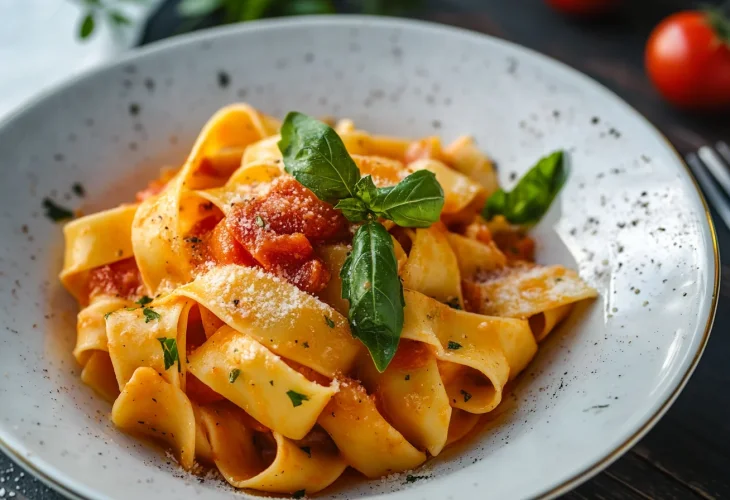The Common Pasta Cooking Mistakes You Might Be Making
Think cooking pasta is simple? You might be surprised by a few small mistakes that can make all the difference—here's how to get it right.

Pasta is one of the most popular dishes around the globe with a variety that suits every taste. Even though cooking pasta seems straightforward, there are quite a few missteps that can lead to less-than-perfect results. Here are some of the most common mistakes and how to avoid them to enjoy perfect pasta.
1. Using too little water
Many people cook pasta in a small amount of water to save time or thinking there's enough room in the pot. However, pasta needs plenty of water to cook evenly and prevent sticking. The rule of thumb is at least 1 liter of water per 100 grams of pasta. Ample water ensures that the pasta maintains its al dente texture.
2. Adding pasta before the water boils
In a rush? It's tempting to add pasta as soon as the water starts to simmer, but putting it in before the water is fully boiling can lead to uneven cooking and stickiness. Make sure the water is at a full boil before adding the pasta.
3. Not salting the water
A very common mistake is not salting the cooking water. Salt enhances the flavor of the pasta itself and helps with the optimal texture. Pasta absorbs the salt as it cooks, which ensures it is properly seasoned. A good rule is one tablespoon of salt per liter of water. No need to worry about it being too salty—most of the salt remains in the water and does not get absorbed by the pasta.
4. Rinsing pasta after cooking
Rinsing pasta after cooking removes the starchy goodness released during cooking, which is crucial for binding the sauce effectively. To prevent sticking, simply toss the pasta with a bit of olive oil instead of rinsing.
5. Overcooking the pasta
Overcooking is a notable mistake, leading to soft, flavorless pasta. The Italian term "al dente" describes the ideal state where the pasta is tender outside but firm inside. To achieve this, follow the cooking time on the package and test the pasta towards the end of cooking. Remember, pasta continues to cook even after it's drained.
6. Not stirring the pasta while cooking
Once the pasta hits the hot water, gently stir it occasionally to prevent pieces from sticking together. In the initial moments of cooking, the risk of sticking is greatest, so stirring helps ensure the pasta is separate and cooks evenly.
7. Throwing away the cooking water
Pasta water is a hidden treasure worth saving. The starchy water can make your sauce creamy and rich. Before draining the pasta, save half a cup of the cooking water to mix into your sauce. It helps the sauce cling perfectly to the pasta and adds a smooth, pleasant texture.
8. Combining pasta and sauce at the last minute
Another common mistake is adding the cooked pasta to the sauce right before serving without cooking them together. Once you've drained the pasta, add it to the sauce pot immediately and cook them together for a few minutes. This allows the pasta to absorb the sauce's flavors and creates a more unified dish both in flavor and texture.
Bottom Line: Perfect Pasta – Simple yet Precise
Cooking pasta is an art, and achieving perfect results involves following some basic rules. By avoiding common mistakes and paying attention to the process, you can enjoy rich, delicious, and perfectly cooked pasta every time.

